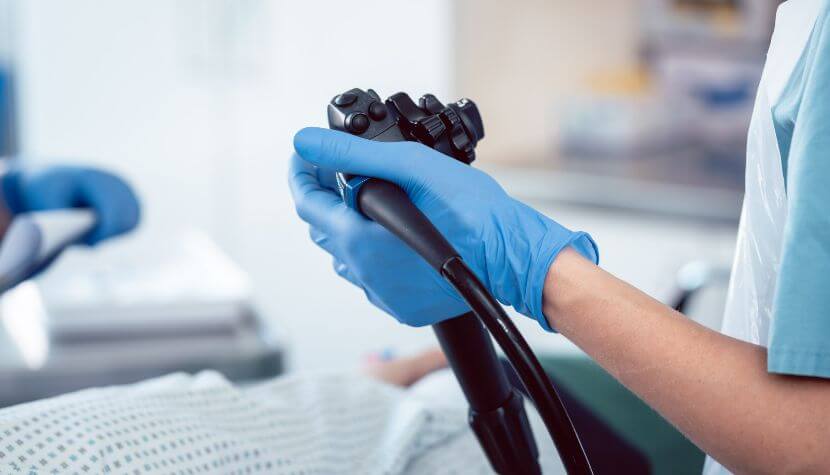
Colon cancer is the third most common non-skin cancer in both men and in women, and is our nation’s second leading cause of cancer death. Colon cancer begins as a colon “polyp” – a small growth inside the large bowel. There are several kinds of colon polyps. Not all polyps develop into bowel cancers, but all bowel cancer starts as a colon polyp.
Finding and removing polyps before they “transform” into cancer, is the goal of colon cancer screening. The test most likely to detect both colon polyps and colon cancer is colonoscopy. Colonoscopy is performed by a physician with a scope (a thin flexible tube) that is inserted into the rectum. The physician can see the entire colon directly. If the physician sees polyps, they are removed through the thin flexible tube.
The American Cancer Society currently recommends that people age 50 and older with an average risk for colon cancer have a colonoscopy done once every 10 years. For more information regarding colonoscopy and other types of colon cancer screenings, we have provided you with links to additional information including Community Care General Surgery which performs colonoscopies. Your primary care doctor can refer you for colonoscopies.
Useful Links
Colon (large bowel/large intestine) cancer is the third commonest non-skin cancer in both men and in women, and is our nation’s second leading cause of cancer death.
Other Cancers
The CDC recommends getting screening tests regularly may find breast, cervical, and colorectal (colon) cancers early, when treatment is likely to work best. They also have information on screenings for lung, ovarian, prostate, and skin cancers.
American Cancer Society/Be Safe in the Sun
The American Cancer Society informs you how sun exposure is linked to cancer and steps you can take to protect yourself from the sun’s rays.
Academy of Family Physicians Cancer Screening Recommendations
Cancer Screening Recommendations from the American Academy of Family Physicians for breast, cervical, colorectal, prostate, skin, and testicular cancer.
American Cancer Society Guidelines for the Early Detection of Cancer
The American Cancer Society guidelines for the early detection of cancer for most adults.
Talk to your Doctor about Cancer Screening
Screening tests can help find cancer at an early stage, before symptoms appear. When abnormal tissue or cancer is found early, it may be easier to treat or cure.
